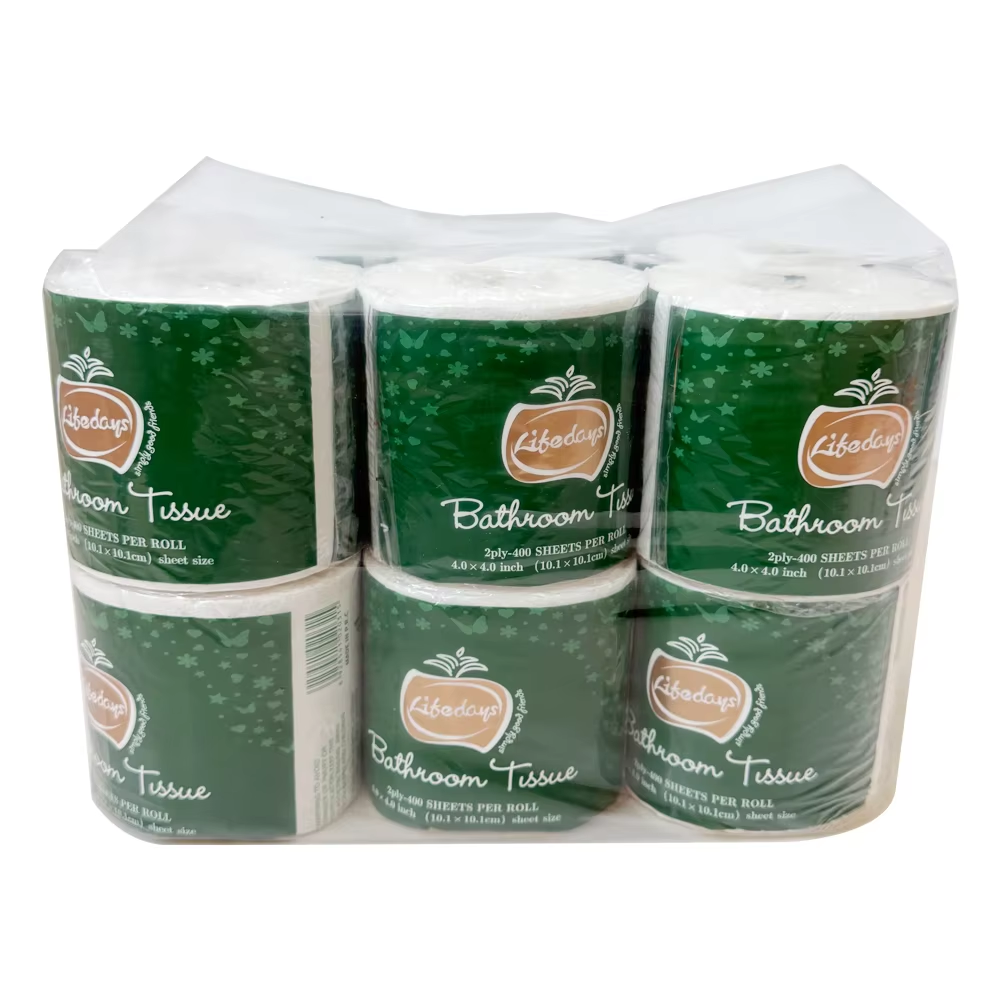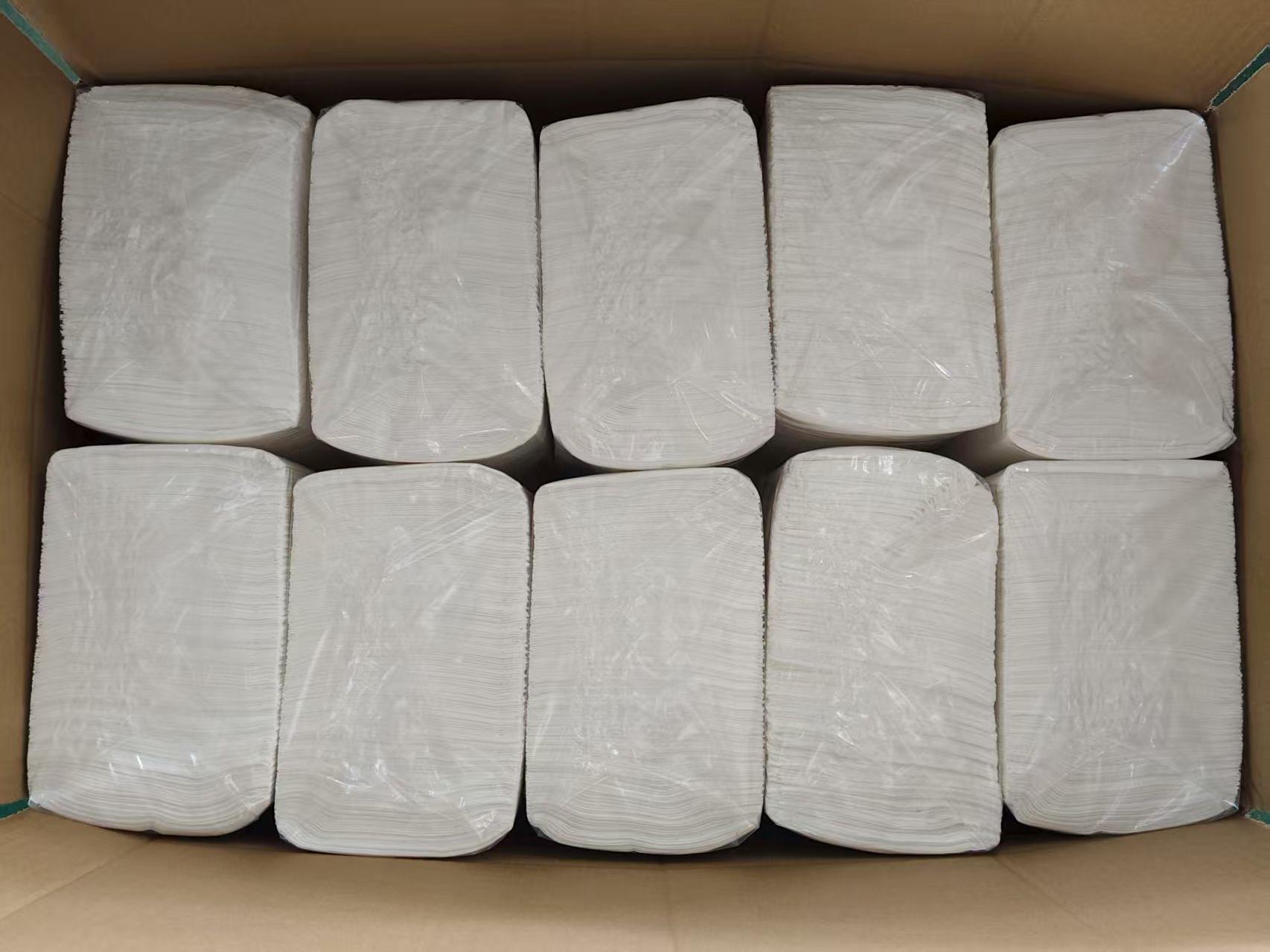Views: 0 Author: Site Editor Publish Time: 2025-09-17 Origin: Site
A paper towel is one of the most common items in any kitchen or bathroom. We use them for spills, drying hands, and general cleaning without a second thought. But have you ever paused before tossing one in the toilet? This simple act can have significant consequences for your plumbing and the environment. This article will explore the common questions surrounding paper towel disposal.
We will look into whether you can flush a paper towel, discuss if paper towels are biodegradable, and compare them to other products like toilet paper. By understanding the properties of these everyday items, you can make more informed decisions that protect your home's plumbing and the planet.
The short answer is no, you should not flush a paper towel. While it might seem convenient, especially when you use one in the bathroom, it’s a habit that can lead to serious and expensive problems. Unlike toilet paper, which is designed to break down quickly in water, paper towels are engineered for the opposite purpose.
Manufacturers design the modern paper towel to be strong and absorbent. The fibers are bonded together with chemicals and resins to ensure they don't fall apart when wet. This durability is excellent for cleaning up a spill on your counter, but it’s a nightmare for your plumbing system. When you flush a paper towel, it doesn’t dissolve. Instead, it travels down your pipes mostly intact, where it can easily get caught on imperfections or join with other flushed items.
Over time, these flushed paper towels can accumulate and create a stubborn clog. This can lead to backed-up toilets, overflowing drains, and costly plumbing repairs. The problem extends beyond your home's pipes. If the paper towel makes it to the municipal sewer system, it can contribute to massive blockages known as "fatbergs," which are conglomerates of grease, oil, and non-biodegradable solids that disrupt public infrastructure.

To understand why flushing a paper towel is a bad idea, it helps to compare it directly with toilet paper. The fundamental difference lies in their design and intended function.
Feature | Toilet Paper | Paper Towel |
|---|---|---|
Purpose | Designed for personal hygiene and quick dissolving in water. | Designed for cleaning, absorbing liquids, and durability when wet. |
Fiber Length | Made with short, weak fibers that break apart easily. | Made with long, strong fibers bonded with resins. |
Breakdown in Water | Dissolves within minutes of being agitated in water. | Remains largely intact, even after being submerged for hours. |
Plumbing Impact | Safe for most septic and sewer systems. | High risk of causing clogs in home plumbing and municipal sewers. |
As the table shows, products like Scott toilet paper are specifically created to be flushable. They undergo rigorous testing to ensure they disintegrate rapidly. A paper towel, on the other hand, is built to last, making it a significant hazard for any drainage system.
This question is a bit more complex. Yes, most paper towels are biodegradable, meaning they can be broken down by bacteria and other microorganisms over time. After all, they are made from wood pulp, a natural, organic material. However, the rate at which they biodegrade and the conditions required are important factors to consider.
When a paper towel ends up in a landfill, its ability to biodegrade is severely hampered. Landfills are often packed so tightly that there is little oxygen available. This anaerobic environment slows down the decomposition process significantly. A single paper towel can take several weeks to months to break down, and during that time, it contributes to the production of methane, a potent greenhouse gas.
Furthermore, some paper towels are treated with chemicals, dyes, or lotions that can hinder the biodegradation process or release harmful substances into the soil and groundwater as they decompose. While the paper itself is organic, the additives may not be.
If you want to dispose of your used paper towels in an environmentally friendly way, composting is a far better option than sending them to a landfill. A paper towel can be a valuable addition to a compost pile, where it acts as a "brown" material, providing carbon to balance the nitrogen-rich "green" materials like food scraps.
Before you toss a paper towel into your compost bin, make sure it was used to clean up water, dirt, or food messes. Avoid composting paper towels used with chemical cleaning agents, grease, or oil, as these substances can harm the beneficial microbes in your compost and contaminate the final product.
The environmental impact of paper products has led many consumers to seek more sustainable options. One popular alternative that has gained traction is bamboo toilet paper. Bamboo is a type of grass, not a tree, and it grows incredibly fast. Some species can grow up to three feet in a single day, making it a highly renewable resource.
Unlike trees, which can take decades to mature, bamboo can be harvested in just a few years without killing the plant. The root system remains intact, allowing it to regrow quickly and preventing soil erosion. Additionally, bamboo requires less water and no pesticides to grow, further reducing its environmental footprint compared to traditional wood pulp production. Using bamboo toilet paper can be a great way to reduce your reliance on tree-based products and support more sustainable forestry practices.

Flushing a single paper towel once is unlikely to cause an immediate clog, especially in a modern plumbing system. However, it's not a risk worth taking repeatedly. Making it a habit significantly increases the chances of a blockage over time.
Many products marketed as "flushable" wipes do not break down as effectively as toilet paper. Like paper towels, they are a common cause of clogs in household and municipal sewer systems. Plumbers generally recommend disposing of all wipes in the trash, regardless of what the packaging says.
No, used paper towels cannot be recycled. Food waste, grease, and other contaminants make them unsuitable for the recycling process. The paper fibers are also often too short to be recycled into new paper products. Composting is the best eco-friendly disposal method for clean paper towels.
Understanding the properties of a simple paper towel helps us make better choices for our homes and the environment. While incredibly useful for cleaning, their strength and durability make them unfit for our plumbing systems. Always dispose of paper towels in a trash can or compost pile.
When it comes to your bathroom needs, sticking with products designed to be flushed, like traditional or bamboo toilet paper, is essential. For all your paper product needs, choosing a reliable manufacturer is key.
Baoda Paper is a trusted provider of high-quality paper products, committed to excellence and customer satisfaction. Whether you need materials for household use or commercial purposes, they offer reliable solutions.
To learn more about their offerings, please contact Baoda Paper:
Email: sale@baodapaper.com
Phone: +86-750-6895212


| | Address: Xinyuan Industrial Development , Xinhui District , Jiangmen City, Guangdong province , China |
| | Custom Support & Sale: +86-750-6895212 |
| | phone: +86-13380963281 |
| | E-mail: sale@baodapaper.com |